
“Os sistemas de educação têm um potencial inexplorado para se aprimorarem” – Mel Ainscow
A mudança educacional focada na equidade é provavelmente a mais discutida, problema debatido e urgente que enfrentamos nos EUA. educação hoje, particularmente porque a pobreza continua a crescer. O termo “fechando a lacuna de realização” refere-se à diminuição das disparidades nos resultados acadêmicos entre preto e branco, Latino e Branco, e estudantes imigrantes e brancos recentes. Há aqueles que acreditam que há muito foco na responsabilidade. Há quem acredite que a lacuna de desempenho não é criada pelas escolas. Mais e mais estudos confirmam que crianças que nascem em desvantagem de pais sem educação se saem mal em programas de testes em comparação com crianças que crescem em famílias ricas e começam a vida com muito mais vantagens. Outros estudos descobriram desigualdades surpreendentes entre as escolas que atendem alunos pobres e aquelas que atendem aos ricos.. O fornecimento de recursos adicionais às escolas pobres melhora substancialmente o sucesso dos alunos?, ou também é preciso abordar simultaneamente as questões relacionadas ao bem-estar econômico da família? Se queremos alcançar os níveis dos países de maior desempenho em todo o mundo, precisamos abraçar a visão de que uma educação excelente é um direito de cada criança. Agora é a hora de reunir nossa melhor pesquisa, conhecimento e habilidades, e melhorar as experiências educacionais de estudantes de baixa renda e minorias raciais. Fiquei encantado ao descobrir que Helen Janc Malone escolheu se concentrar em alcançar a equidade na educação em seu novo livro, Mudança educacional líder: Questões Globais, Desafios e Lições sobre a Reforma do Sistema Integral.
Hoje em A Pesquisa Global para a Educação, Começo uma nova série sobre esse tópico com Helen e quatro de seus autores globais cujo trabalho é focado na mudança educacional. O primeiro é Mel Ainscow, professor of education and co-director of the Centre for Equity in Education at the University of Manchester in the UK. Mel’s work focuses on inclusion, teacher development and school improvement. Helen Janc Malone is Director of Institutional Advancement at the Institute for Educational Leadership in Washington DC.
O Email, what factors do you believe play a role in student learning in low income communities?
We know that children with low attainment tend to come from poorer families. These families often live in deprived urban areas, where there are high levels of poor housing, unemployment, ill-health and a host of other factors associated with poor educational outcomes.
We also know that neighborhood dynamics are important: the type of school the students attend, the mix of students, and their experiences in the school are also important. This suggests that school and non-school factors combine to lower the attainment of children and young people who are already disadvantaged by their backgrounds.
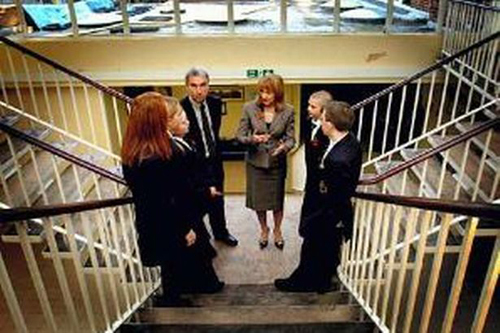
“School partnerships are the most powerful means of fostering improvements, particularly in challenging circumstances.” – Mel Ainscow
Please briefly summarize the goals and achievements of the Greater Manchester Challenge.
Entre 2007 e 2011, I led an initiative that set out to address this important policy agenda in more than 1,100 English schools. Known as the Greater Manchester Challenge, the project had a government investment of around £50 million ($80 milhão). The decision to invest such a large budget reflected a concern regarding educational standards, especialmente entre os jovens de meios desfavorecidos. Depois de três anos, o impacto foi significativo em relação a melhorias nas pontuações dos testes e, de fato,, a forma como o sistema de ensino realiza o seu negócio.
Surgiram quatro lições importantes que têm implicações para desenvolvimentos em outros lugares. A primeira lição é que sistemas de educação têm potencial inexplorado para melhorar a si mesmos. Conseqüentemente, o ponto de partida deve ser com uma análise contextual. Na Grande Manchester, isso nos convenceu de que a maior parte do conhecimento necessário para levar o sistema adiante estava em nossas escolas. Nosso objetivo, portanto, era mover o conhecimento.
Esta conclusão levou à segunda lição, aquele as parcerias escolares são o meio mais poderoso de promover melhorias, especialmente em circunstâncias desafiadoras. Focando 200 ou então escolas que designamos como “keys to success,” each carried out its own analysis of need with the support of a team of expert advisers. Eles foram, então, uma parceria com outra escola que era conhecido por ter pontos fortes relevantes.
É significativo que essas parcerias, muitas vezes teve um impacto positivo sobre a aprendizagem dos alunos, tanto das escolas. Esta é uma descoberta importante na medida em que chama a atenção para uma forma de reforçar as escolas relativamente baixo desempenho que podem, ao mesmo tempo, ajudar a promover melhorias mais amplas no sistema. Ele também oferece um argumento convincente a respeito de porque uma escola relativamente forte deve apoiar outras escolas. Simplificando, the evidence is that by helping others you help yourself.
The third lesson is that networking is a means of stimulating experimentation with new ways of working. No entanto, pathways have to be created that cross the social boundaries that prevent the movement of ideas within the system. Com isso em mente, we created “families of schools,” using a data system that grouped schools from different neighborhoods on the basis of the prior attainment of their students and their socio-economic home backgrounds.
Led by school principals, the families proved to be successful in strengthening collaborative processes, although the involvement of schools remained uneven and there were concerns that too often those that might most benefit chose not to do so.
The fourth lesson is that the leadership has to come from within schools. The good news is that we found that many successful principals were motivated to take on system leadership roles.
These four lessons provide the basis for developing self-improving school systems. No entanto, such developments do not happen by chance. They require national policies that help to create the conditions within which locally led action can be taken. They also require some form of coordination at the district level.

“Leadership has to come from within schools.” – Mel Ainscow
What can we learn from the Harlem Children’s Zone experiment and what is transferable to other high risk school zones?
Within the international research community, there is a division of opinion regarding how to improve outcomes for disadvantaged students. Por um lado, there are those who argue that what is required is a school-focused approach, with better implementation of the knowledge base from school effectiveness and improvement research. Por outro lado, there are those who argue that such school-focused approaches can never address fundamental inequalities in societies that make it difficult for some young people to break with the restrictions imposed on them by their home circumstances.
An obvious possibility is to combine the two perspectives by adopting strategies that seek to link attempts to change the internal conditions of schools with efforts to improve local areas. This is a feature of the highly acclaimed Harlem Children’s Zone, a neighborhood-based system in New York. What is important about the approach is that it is doubly holistic. primeiramente, it links attempts to improve schools with efforts to tackle family and community issues that make it difficult for children to do well. Em segundo lugar, it sustains these efforts by providing “cradle-to-career” support as the child grows into an adult.
Helen, what can we learn from the Greater Manchester Challenge?
The old adage that “schools can and should do it alone” is a myth debunked by a burgeoning body of research that shows that partnerships, relações, collaboration and knowledge sharing matter in improving instruction, changing school cultures and positively impacting students’ vidas. While schools by themselves cannot offer solutions to all the social ills that burden the lives of students, meaningful partnerships between and across schools can help to create conditions and opportunities that promote learning and positive development. We see this in the Harlem Children’s Zone in the U.S. context and we see that in the Greater Manchester Challenge in the UK.
What Ainscow’s illuminating work indicates is that there is much to be hopeful about when it comes to educational change. Collaboration among schools can be a powerful tool for innovation, improvement and individual and institutional learning. Building an educational culture that encourages within and across school sharing of promising practices, continuous professional development and staff empowerment leads to a motivated and inspired staff fully engaged in knowledge generation, development and sharing in direct service to improve the lives and academic outcomes of all students. Opening doors to school-community partnerships helps schools focus on their goals while ensuring that students have access to robust, high-quality services and programs that complement their school experience. Schools are a central institution in most communities and as such, have a critical role to play in addressing equity of learning opportunity. The Greater Manchester Challenge offers an example of how substantive partnerships can help schools improve and students achieve.
For more information on Ainscow’s and Malone’s work on equity, ver Liderando a Mudança Educacional: Questões Globais, Desafios, e Lições sobre a Reforma Whole-System (Teachers College Press, 2013) em http://store.tcpress.com/0807754730.shtml

Helen Malone, CM. Rubin, Mel Ainscow
Photos courtesy of Mel Ainscow.
Para obter mais artigos da Educação é minha série Direita: A Pesquisa Global para a Educação: Educação é meu direito – Índia, A Pesquisa Global para a Educação: Educação é meu direito – México, A Pesquisa Global para a Educação: Educação é meu direito – Brasil, A Pesquisa Global para a Educação: Educação é meu direito – África do Sul
Na busca Global para a Educação, se juntar a mim e líderes de renome mundial, incluindo Sir Michael Barber (Reino Unido), Dr. Michael Bloco (EUA), Dr. Leon Botstein (EUA), Professor Clay Christensen (EUA), Dr. Linda, Darling-Hammond (EUA), Dr. Madhav Chavan (Índia), Professor Michael Fullan (Canadá), Professor Howard Gardner (EUA), Professor Andy Hargreaves (EUA), Professor Yvonne Hellman (Holanda), Professor Kristin Helstad (Noruega), Jean Hendrickson (EUA), Professor Rose Hipkins (Nova Zelândia), Professor Cornelia Hoogland (Canadá), Honrosa Jeff Johnson (Canadá), Senhora. Chantal Kaufmann (Bélgica), Dr. Eija Kauppinen (Finlândia), Secretário de Estado Tapio Kosunen (Finlândia), Professor Dominique Lafontaine (Bélgica), Professor Hugh Lauder (Reino Unido), Professor Ben Levin (Canadá), Senhor Ken Macdonald (Reino Unido), Professor Barry McGaw (Austrália), Shiv Nadar (Índia), Professor R. Natarajan (Índia), Dr. PAK NG (Cingapura), Dr. Denise Papa (US), Sridhar Rajagopalan (Índia), Dr. Diane Ravitch (EUA), Richard Wilson Riley (EUA), Sir Ken Robinson (Reino Unido), Professor Pasi Sahlberg (Finlândia), Professor Manabu Sato (Japão), Andreas Schleicher (PISA, OCDE), Dr. Anthony Seldon (Reino Unido), Dr. David Shaffer (EUA), Dr. Kirsten Immersive Are (Noruega), Chanceler Stephen Spahn (EUA), Yves Theze (Lycée Français EUA), Professor Charles Ungerleider (Canadá), Professor Tony Wagner (EUA), Sir David Watson (Reino Unido), Professor Dylan Wiliam (Reino Unido), Dr. Mark Wormald (Reino Unido), Professor Theo Wubbels (Holanda), Professor Michael Young (Reino Unido), e Professor Minxuan Zhang (China) como eles exploram as grandes questões da educação imagem que todas as nações enfrentam hoje. A Pesquisa Global para Educação Comunitária Página
C. M. Rubin é o autor de duas séries on-line lido pelo qual ela recebeu uma 2011 Upton Sinclair prêmio, “A Pesquisa Global para a Educação” e “Como vamos Leia?” Ela também é autora de três livros mais vendidos, Incluindo The Real Alice no País das Maravilhas.
Siga C. M. Rubin no Twitter: www.twitter.com/@cmrubinworld


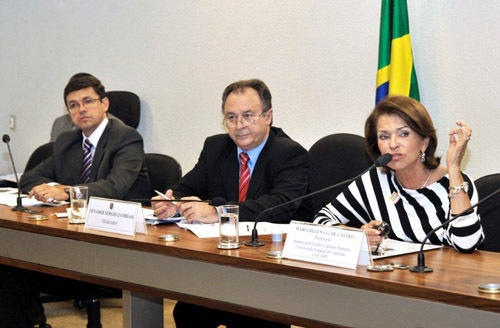
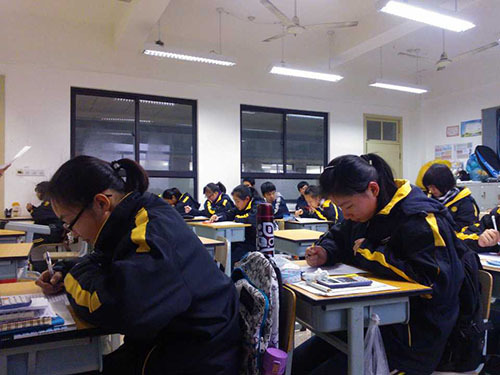
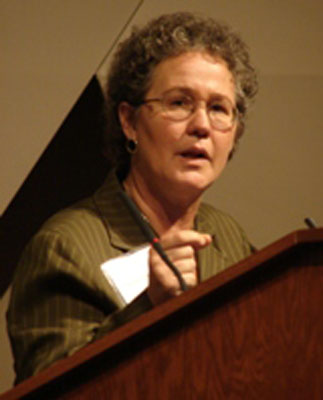
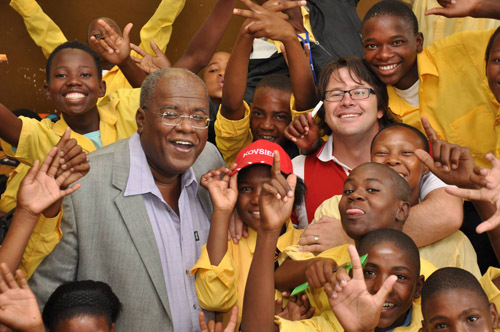
Comentários Recentes